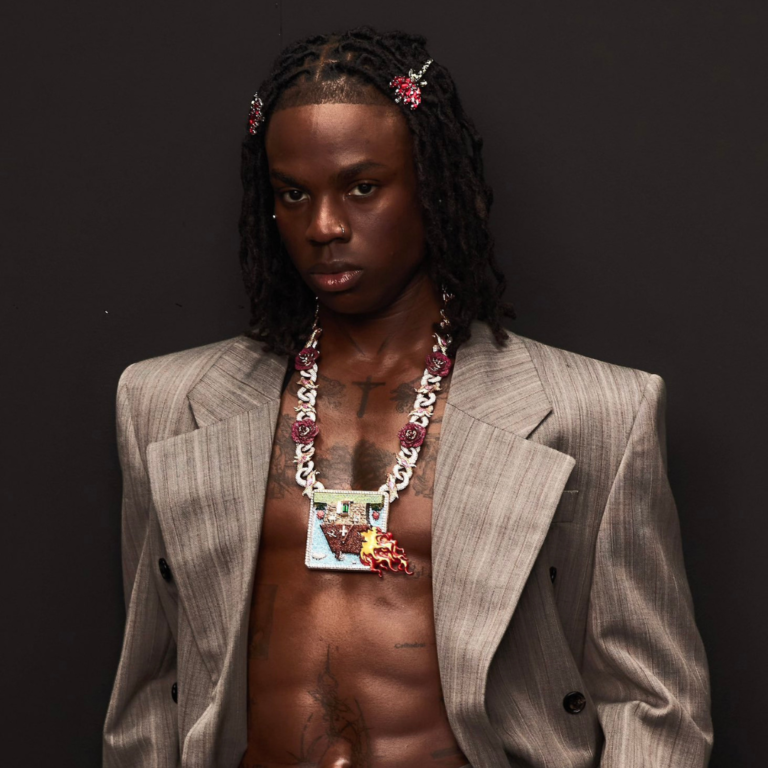In Nigeria, okrika, AKA thrift wear or OK, is the cheaper alternative when one can’t afford the florescent-lighted boutiques. From the rural towns of Nigeria to its roadside stalls and bustling cities, second-hand clothing is a staple of many Nigerian markets.
We spoke to five Nigerians about their most awkward okrika moments, from avoiding familiar faces at a thrift shop to unknowingly carrying around the stench of unwashed okrika.
Faith, 32
Buying okrika can be ridiculous sometimes. A church member saw me buying okrika, and she actually wanted to buy it too because it was the day new bail was being released. But she pretended not to see me. It was weird and I don’t know what was going on in her mind. Anyway, I also acted as if I didn’t see her and that was just about it.
Hannah, 25
I had an event to attend, and I needed some trousers for it, but I had to go to the bank to collect my ATM card first. While at the bank, I saw an old friend. We hadn’t seen each other in years, so I was happy to see her and reconnect again. This friend is a waka-waka person, she likes to walk around.
We left the bank together and went to see one of her friends who works in a bank (she even tried to hook me up with the guy. Someone I hadn’t seen in a long time o). Anyways, I told her I had somewhere to be, but I wanted to get trousers first. She suggested a place she knew. It was a thrift shop—not the bend-down-and-select market.
So when I got inside, I saw someone lying on the floor and I realised they were church members. We exchanged greetings and then he said, “You too, you’re here to get clothes.” Unashamedly, I said, “Yes, the country is bad right now,” and that was it. Interestingly, the guy paid for one of the clothes I bought there.
Elijah*, 31
During my NYSC days, I had to attend an end-of-year-party at my workplace. I realised last minute that I didn’t have what to wear and decided to make a quick dash to Yaba on the Friday before the hangout. I got really nice items, but when I got home, I realised the clothes wouldn’t dry if I washed them. Since washing wasn’t an option, I got the not-so-bright idea of dousing the clothes in perfume with the hopes that the okrika stench would be overpowered.
I asked my cousins if they caught any weird smell the next morning and they swore they didn’t. That was probably because I’d almost emptied a bottle of perfume on my body. But you know what they say about cheap perfume? It’ll watch you leave the house because it doesn’t have the energy to impress people way past inside your house.
Anyway, I got to work the next morning and after I hugged my colleagues, I caught this slight smirk on her face. I caught it on someone else too. And then I started to freak out that they probably discovered I was wearing unwashed okrika. I tried to minimise contact the entire time because in my head I wasn’t sure if it was my perfume choking them, the stench of okrika or both.
Idowu, 27
Growing up, I didn’t first have a problem with thrift wears because I had trust in my mom to get me good stuff. And she did every time. The thickest and coolest cardigans and school bags that caught her eyes were bought for my siblings and I. But one particular day, in primary five, I returned home from school and told my mother she shouldn’t buy me anything “boskoro” again after a fellow student told me I smelled like thrift wears. “Boskoro” means “Bo si koro” (come to the corner), a statement that insinuates selecting and buying second-hand clothes from prying eyes of the classist public.
As a kid, I was always sensitive to embarrassment. I felt embarrassed by my classmate’s comment. I was adamant I would never wear it again, to the point my mom stopped bothering me. I still mutter insults at the guy whenever I remember. Though now, I live in Lagos and I go to Yaba frequently. The thrift shops there have some of the cheapest and coolest sneakers ever—cheaper than Black Friday goods.
Moe*, 24
I went out to get jeans in Arena, a place in Oshodi, one time. The jeans had a cute fashionable chain with a key holder. I liked it so much and wanted to buy it. But the seller told me he’d remove the chain attached to the jeans. I asked why he said it’s not my business. I was confused because it was up for sale. So, why would he tell me he’d take something away from it? I offered to buy it, but he refused. Eventually, he said he needed it too. I was vexed and gave him the middle finger.




